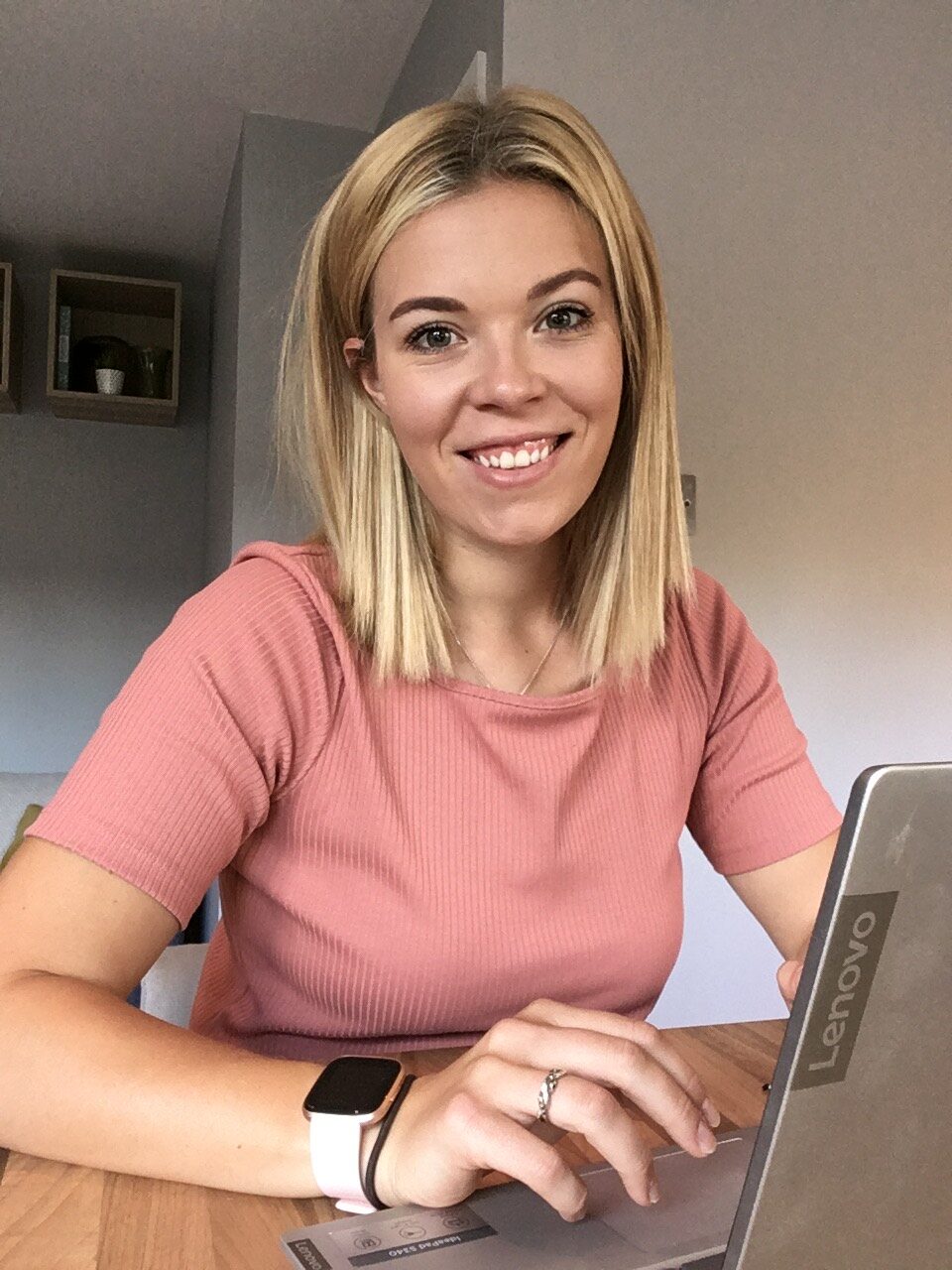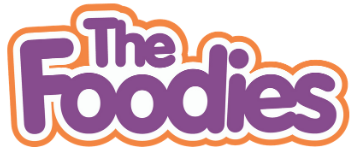Joanne Roach (00:13)
Hello and welcome to the Food for Kids podcast. I'm Joanne from the Foodies. Today's episode is about how to handle food if you use a home-based childcare professional. So that's a childminder caring in their home or a nanny caring in yours. And I have a short interview with one of each about how they divide the responsibility with families.
When it comes to food preparation in childcare, it's helpful to understand that nannies and childminders work under quite different frameworks in the UK and that affects both their legal responsibilities and how you as a parent can approach making agreements with them.
So let's start with childminders. Childminders work from their own homes and they're registered with OFSTED in England or with the Care Inspectorate in Wales or Scotland or the Local Health and Social Care Trust in Northern Ireland.
In England, if they're registered childcare providers and are caring for children under five, they have to follow something called the Early Years Foundation Stage or EYFS, which is a curriculum for learning and welfare for that age group. This includes quite specific requirements around food and drink. Childminders have to make sure that any food and drink they provide is healthy, balanced and nutritious.
They also have to be aware of children's individual dietary requirements, allergies and parental preferences. Food hygiene training is considered good practice and OFSTED inspectors do check how food is handled and served during their inspections.
I interviewed lovely childminder called Claire who is really into food herself and has a lovely Instagram channel called "Claire Doing Small Things". We talked about the different ways that food is handled by different childminders and I'll play that interview now.
Joanne Roach (01:49)
Claire, you're an experienced childminder and I know from looking at your social media posts that feeding your minded children well is really important to what are the rules and structures that childminders have to work with when it comes to food? do some minders do hot lunches and others have parents bring packed lunches? What happens with snacks? What basically is the range of ways that people can organise their food with a childminder?
Claire (02:10)
So one of the beautiful things that I love about childminding is that we are all so unique and different. And some childminders will provide hot meals, breakfast, lunch, dinner, and snacks, which is what I do. Some childminders will only provide snacks and the parents provide the pack ups. And some minders provide no food whatsoever and it all comes from home. So it's just individual choice, really.
Joanne Roach (02:39)
In terms of food that's brought in from home, packed lunches, if snacks are sent in from home, or if people send in leftovers to heat up, are there like regulations that you have to work with?
Claire (02:51)
So most child minders will have done food hygiene training and we all will have done allergen training as well. I personally don't have food brought in that's reheated. We have very strict guidelines that we have to follow, very similar to what you have at school and what you're have in nurseries as to what is deemed acceptable to come in a lunchbox.
And there will obviously be settings that are no nut settings, for example, or other allergens that they don't want bringing in, but equally healthy. We want healthy foods. We don't really want chocolates and biscuits and crisps and lots of processed food. So sometimes that can mean that we might need to help parents and kind of signpost them to some brilliant websites. But yeah, so they need to make sure that it's balanced nutrition really.
Joanne Roach (03:47)
So you've said that you provide all of the food for your children, breakfast, lunch and all your snacks. Do you have regulations that you have to keep to or guidelines that you have to keep to about what you provide for the children?
Claire (03:58)
So obviously one of the first things that we do when we have a new family that comes into the setting is there is a form for them to fill out to find out if there are any allergens, if there are any sensitivities, if they're vegetarian, if they've got celiacs, know, whatever it might be so that we already know when they come in that they've got a dairy allergy or they've got a wheat allergy. I've obviously already mentioned the food hygiene that we all need to do.
And then it as part of the EYFS states that we must make sure that we produce a balanced nutritional diet for children, ensuring that they have fresh fruit, vegetables, protein, carbohydrates, and as little sugar as possible. I'm very lucky in that I love cooking and I do it a lot and I think because I've been child minding for such a long time you kind of learn the little tricks so my secret veggie sauce that goes on our pasta is devoured every single time but if they actually knew all of the different vegetables that went into that sauce they would probably say I can't eat it it's got peppers in it or tomatoes. Sometimes it might be because they've never had it before, they don't know what it is. And sometimes it's just that we all eat differently. Time constraints cause such a problem these days. You know, we're all running around trying to do lots of different things and cooking from scratch can become something that doesn't happen that often.
So we do like baking sessions on a Tuesday and the children get involved like we've made soup for example, we've made soup and bread and that's what we've had for lunch and they eat it and they eat it because they help to make it. if I was just to put soup that I've made in front of them with some bread, guaranteed that they won't eat it because they don't like the look of it or they don't like the smell of it or whatever, But if they've been involved in it themselves, they always eat it.
Joanne Roach (05:53)
if a parent who's listening to this podcast is thinking about finding a childminder for their child and they are interested in food or food is really important to them, what sort of questions would you suggest that they ask a minder when they go to see them about how food is organised
Claire (06:09)
So I would be asking what meals they provide. Most childminders, if they do provide meals, will have a sample menu. I know in the back of my welcome pack, there is a sample menu about what we do for breakfast, what that looks like, what snacks look like, and all the other meals. Be asking them where do they get their food from? I shop locally, we go to the market. Sometimes the children will come with me to the supermarket to go and get things. We're very lucky that we get our fruit and veg delivered. Asking them what type of things that they make to eat, I would be asking if they've done their food hygiene training, what their policy is on healthy eating. I mean, we all need to have a policy on healthy eating and food and then asking if they do have children that bring in pack ups, I would be asking the minder how they ensure that everybody has a good, nutritious diet and what steps they take to make sure that everyone is included and everybody has a full tummy at the end of the day.
Joanne Roach (07:26)
So as you heard there, with a childminder, the conversation between parents and the carer about food provision tends to be quite structured. They're usually used to discussing meal plans with parents, keeping records of children's dietary needs and following policies that are part of their registration. So if your child is eating at the childminder's house, you should expect to have a chat at the start about what sort of meals they provide, whether you need to supply anything and how they handle things like snacks, treats and special dietary requirements.
Nannies on the other hand are not required to register with Ofsted, although some choose to on a voluntary basis. They are employed by you and work in your home, so they're not bound by the same regulations. There's no requirement for a nanny to have food hygiene training unless you as their employer include it in the job description.
However, good nannies and reputable agencies will often do a lot of the same training anyway in order to keep up with best practice and that's one of the things that you can explore with them.
A couple of years ago I interviewed a nanny called Jackie who gave some examples of some of the ways she had been asked to handle food in her postings. Here's that interview.
Joanne Roach (08:35)
OK, Jackie, so you're a nanny. So you're obviously going into people's homes and looking after their children. And quite a lot of our listeners will have children who eat with a childcare professional at some point, But a lot of people haven't had childcare professionals in their own home and wouldn't know what kind of setups you can have for divvying up the food responsibilities between different parts of the household. So what sort of arrangements have you come across or have fellow nannies come across how people divide up what the parent does and what the childcare professional does.
Jackie Cox
So I've been a nanny for about five years and it's been typically about a year per The first family I was with, was very much the mum said in the morning can you make a bolognese or sausage hot pot? There's ingredients in there. I get it and cook it. So that was kind of, she decided, but I cooked it. The next family I was with was with some twins and they kind of said, can you plan out with their lunches and dinners, write a shopping list? They went and got shopping because they did that at the weekend themselves, but that was very much me sole charge planning, cooking, shopping list, doing it all. And then the next little girl I was with, again, she'd dictate what she wanted me to cook or say, there's leftovers, she can have that for lunch. Yeah, the current girl I look after I plan and cook things, it's all always a bit more low key, just what they have in the fridge as opposed to meticulous planning of everything.
So yes, it's been quite a variety and I think you can do whatever kind of works best for your family, whether you want the nanny to take sole charge and do it all or just kind of go raid the fridge, whatever they're happy with. it's what works best for your family, I think.
Joanne Roach
If a parent asked you and said, look, we're thinking of hiring a nanny and we need to interview some people and see who's suitable, would you suggest that they ask that as one of the questions when they're interviewing - if I asked you to do the food, what would you cook? so is that like a good question that a parent would ask?
Jackie Cox
Yeah, I think so. 100 % because yeah, again, it's half to do with their beliefs and ethos around food and everything, but also, yeah expectations, on the nanny because some might not be as confident in cooking and planning and stuff. yeah, just a little thing just to let them know that, yeah, we would like you to do the cooking or we're happy to do the cooking ourselves. I think it's good to have the expectations laid out from the beginning so both the parents and the nanny knows the expectations for cooking and food and everything.
Joanne Roach (10:46)
So as we heard there, because nannies are working in your home, most of it comes down to your agreement with them. Think about the practicalities. Will they cook from scratch, prepare packed lunches, Will you do a meal plan together? It's good to be clear from the start and that often means discussing it during the interview stage and writing it into the contract.
Professional organisations that support nannies recommend being upfront about your expectations around food prep, including who will do the food shopping, how much flexibility there is in meals and any particular nutritional preferences your family follows, you can also include in your contract any specific qualifications you'd prefer your nanny to have. Some families ask for paediatric first aid as standard, but you could add a food hygiene course, especially if your nanny will be cooking regularly.
To sum up, with a childminder, food is often part of a professional childcare package that's been inspected and regulated, and it's a case of finding a minder you love who has a food ethos that you can slot into.
And with a nanny it's a more personal arrangement that relies on clear communication and a good working relationship. And you need to find a nanny you love but who is happy with your expectations.
Whichever route you're going down, that open conversation about expectations is key. Not just what your child eats, but who prepares it, how it's served and how flexible you want things to be day to day. And remember that this is a two way street and you should also do your part to help your childcare provider to feed your child well. I will put some links in the show notes to articles about the difference between nannies and childminders and how food is handled by both.
Thursday's episode is a solo one with lots of ideas for balanced, healthy and most of all easy snacks for the summer holidays. With kids at home for weeks now, there will be so many snacks being eaten so I hope you will join me then for some ideas. And in the meantime, happy eating!



0 comments